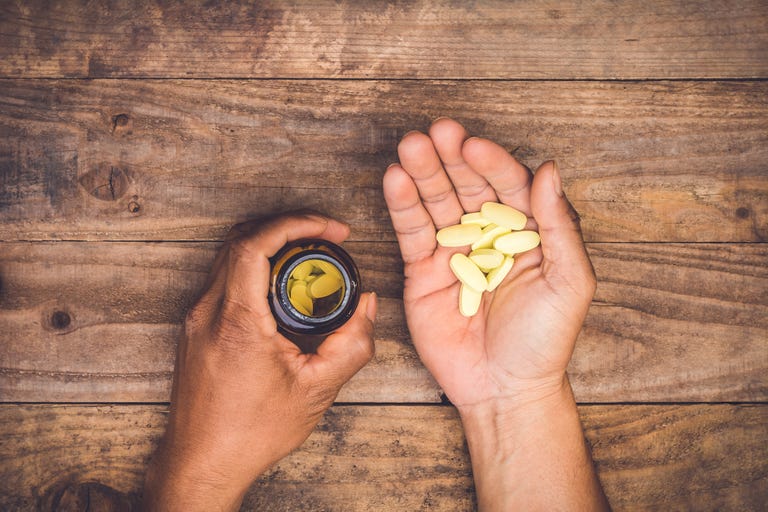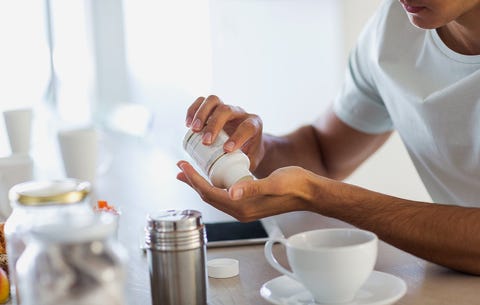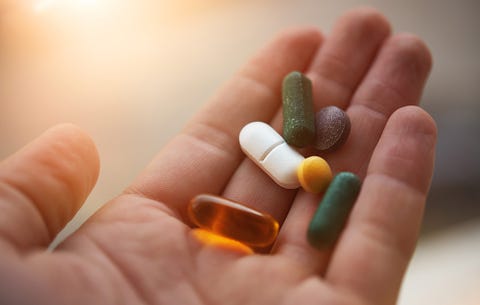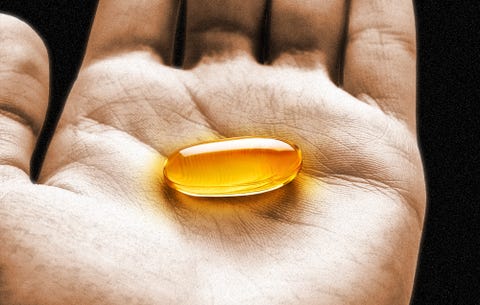
By now you know that real foods — and the real vitamins and minerals in them — are better at protecting your health than extracted nutrients that come in the form of a bottled multivitamin.
Now, a new review of research that collected data from two million people confirms it yet again: Taking a multivitamin doesn’t protect you from heart disease, heart attacks, stroke, or death, the Johns Hopkins researchers found.
Getty Images
Tons of other research backs up the finding, including a study from Brigham and Women’s Hospital in Boston of 14,000 men that found a daily multivitamin did squat to protect against heart disease.
Of course, we’ve been telling you this for years. So has the research itself. There’s basically no solid evidence that taking a multivitamin lowers your risk of chronic diseases or protects your health in any way (assuming you don’t have true vitamin deficiency, that is). Even the American Heart Association doesn’t recommend taking ‘em.
Getty Images
But still, about 30 percent of Americans do — dietary supplements are a $30 million industry in the U.S.
“I think people do it because they think they are being healthy,” says Erin Michos, M.D., the new study’s lead author and an associate professor of medicine at The Johns Hopkins Hospital. “But there really can be too much of a good thing. More is not necessarily better.”
“I think people do it because they think they are being healthy.”
Case in point: Because multivitamins aren’t regulated by the Food and Drug Administration (FDA), some research finds nearly 50 percent of multivitamins don’t even contain what they say they do. That’s concerning, because your body can’t flush out excess amounts of certain nutrients, including vitamins A, De, E, and K. That means they can wind up stored in your liver, where they can potentially cause health issues.
“There is no ‘pill’ that can replace a nutritious balanced diet that is rich in fruits and vegetables and a healthy lifestyle that includes regular physical activity,” Michos says.
A vitamin processed into pill likely also doesn’t have the same health benefits as vitamins and minerals found naturally in foods and eaten alongside other nutrients, she adds.
Shutterstock
And the good news? If you’re eating a diet packed with lean proteins, whole grains, fruits, and vegetables, you’re likely filling up on all of the vitamins and minerals you need. (Example: Most grown men need 120 micrograms of vitamin K a day and a cup of raw spinach offers it.)
If you think you have a true vitamin deficiency — maybe you avoid the sun like the plague and don’t eat fish, or you have a very restrictive diet — see your doc before you buy into a supplement. A blood test can reveal if you’re truly deficient, and then you can consider a vitamin.
shutterstock
But Michos notes that even then, the research is mixed. For example: “There might be a benefit of vitamin D supplementation for those with a documented deficiency, however more data is needed.” To date, she says there aren’t any randomized clinical trials that show vitamin D supplements reduce the risk of heart disease.
To make sure your diet is as healthy as possible, check out our list of the 30 best foods every guy should have on his grocery list.
Source: Read Full Article



